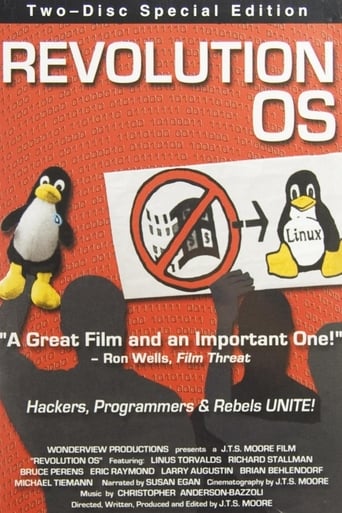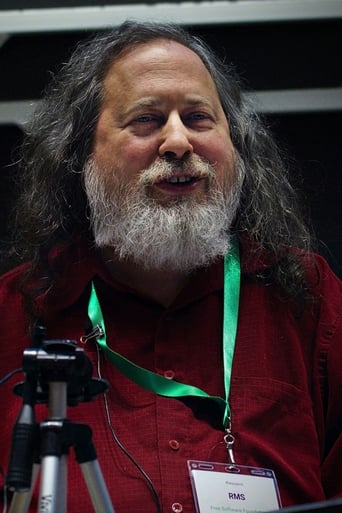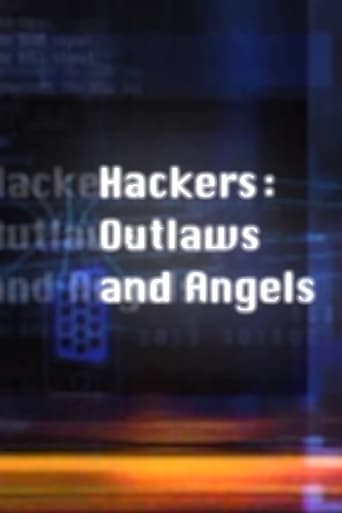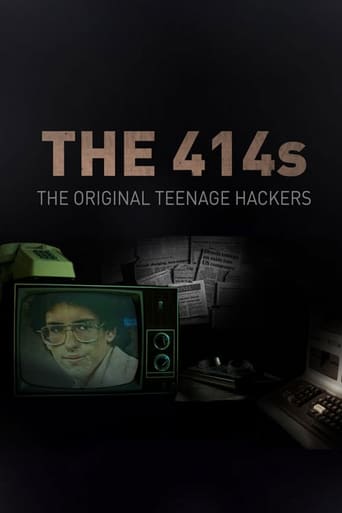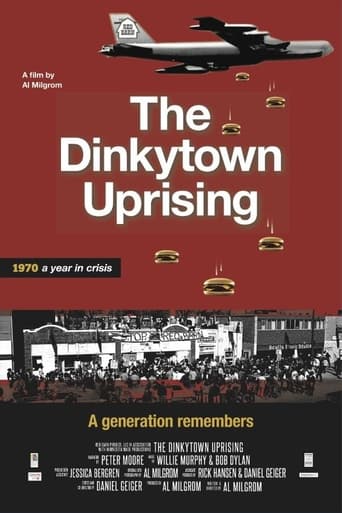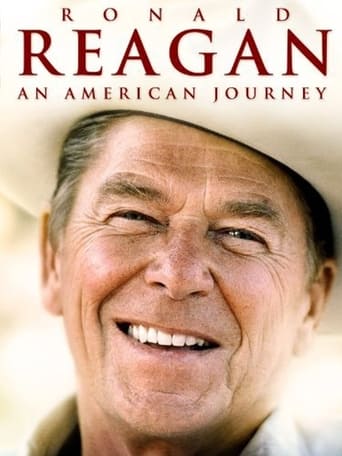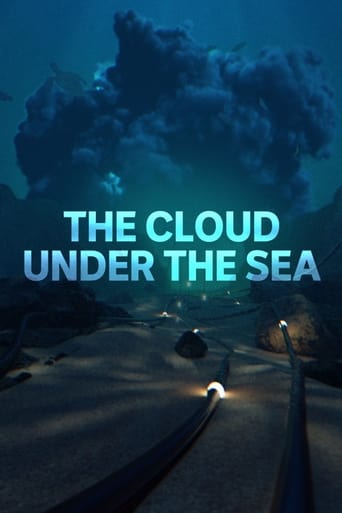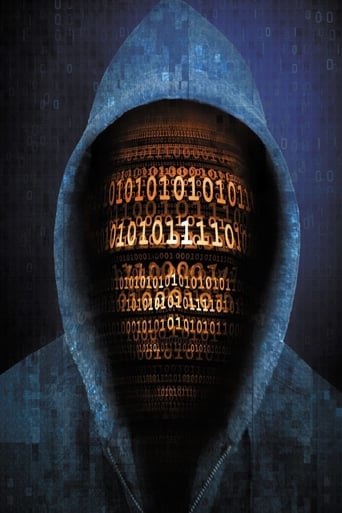Revolution OS (2001)
REVOLUTION OS tells the inside story of the hackers who rebelled against the proprietary software model and Microsoft to create GNU/Linux and the Open Source movement.
Watch Trailer
Cast


Similar titles
Reviews
Good story, Not enough for a whole film
This movie was so-so. It had it's moments, but wasn't the greatest.
Although I seem to have had higher expectations than I thought, the movie is super entertaining.
what a terribly boring film. I'm sorry but this is absolutely not deserving of best picture and will be forgotten quickly. Entertaining and engaging cinema? No. Nothing performances with flat faces and mistaking silence for subtlety.
The film itself was well structured and held my interest quite well. BUT...The majority of the film was trying to demonize Microsoft and Windows users while making heroes out of the Linux community. Honestly it was kind of sad. I use and maintain both operating systems and if they would have presented both sides it would have been much more enthralling, to me anyway.It's an interesting watch just expect it to be completely biased with dated information. they aren't trying to tell the truth, they are trying to tell "their truth".
An interesting "documentary." If only it were true.This movie might just as well have been titled "Revenge of the Nerds: Nerds Destroy Microsoft." Don't worry about the intellectual property issue that someone else owns the rights to the names "Revenge of the Nerds" and "Microsoft." Intellectual property obviously isn't very important to people who champion an operating system built by systematically reverse engineering and copying, piece by piece, someone else's operating system.Except the nerds didn't destroy Microsoft. In the second decade of the 21st century, Microsoft still has a 90% market share and MacOS is its only real competitor. Admittedly, Linux never expressed an interest in market domination, but this movie's tales of Linux's triumph over Windows are greatly overstated.Two of the great success stories presented in the movie; Cygnus and VA Linux, simply no longer exist as presented. Cygnus was absorbed by Red Hat even before the movie was released, and VA Linux abandoned its business model, becoming an entirely new company with a new value proposition shortly thereafter, when a disastrous crash in its stock price proved its original value proposition was indeed weak as it had originally been described.The movie presents absolutely no data from "the other side" other than a letter written by Bill Gates in 1976, when he was twenty and Microsoft had not even been incorporated. Moreover, the letter is read by a woman whose voice borders on a rage-induced hysteria accompanied by a disturbing and ominous soundtrack. I wonder how rational Torvalds would sound with a lurid Berlioz soundtrack accompanying a lunatic's recitation.What is most disturbing/amusing/annoying is the constant insistence by commentators on comparing Linux with Windows NT. Let's see, Microsoft hasn't released a product under that name for more than a decade, so perhaps, if we are to insist on that comparison, we should be examining Windows NT, released in 1993, with Linux 1.0, released in the same year. Now that would be interesting.In the end, this movie has the tone and sentiment of a poorly made propaganda film, and about as much intellectual honesty. Linus Torvalds actually seems slightly bitter at the success other people have achieved through Linux, and he remains unrepentantly in denial of Linux's origins in the GNU project. Many of the other commentators seemed to focus far too much on establishing their geek cred by claiming to have been doing "X" longer than anyone or having done "Y" first. Eventually, their endless ranting exalting themselves and their ideas became simply tiresome and made them appear more ridiculous than authoritative.The one person who didn't come across as an embittered deludinoid is Richard Stallman himself. Stallman, despite a widely held public perception to the contrary, seems a rational and sincere advocate for his own ideals, however naïve they may be. It is perhaps ever so slightly disingenuous for Stallman to advocate working for nothing and giving your work away when he has been the recipient of numerous grants, including the MacArthur Grant – the sizable so-called "genius" grant from the John D. & Catherine T. MacArthur Foundation. Nevertheless, this movie made Stallman seem, to me, quite genuine and even likable.I would call this movie a dramatization, not a documentary. It is definitely entertaining; a delightfully comic, though unintentionally so, look inside the bizarre open source community and their zealous, almost religious devotion to an operating system that, notwithstanding all the declarations of victory to the contrary, has never managed a significant market penetration and, in its prevalent forms, in all likelihood, never will.
Given that I have no knowledge about computers nor how they operate, I foundthis film very informative with some basic descriptions of the free software and open source movement (which have some ideological differences... not that Ihad ever heard of either). The film recounts the historical evolution (andsubsequent "revolution") through a series of interviews of key players in the development of the Linux operating systems for computers. If you know nothing about computers, do not assume that you will find this film uninteresting. In fact, although dense with information, the narrative is straight forward and almost all the information is explained for the ignorant like myself.There are some relatively small problems with the film, mainly near itsconclusion. The finale of the film does not address the disparity between the commercial aspects of open source in the 90's and the long-term growth of the philosophy and practical applications. I assume that the Linux OS and the idea of open source did not lose steam after the dot-com stock bubble burst. Given I don't work around computers, besides for internet research and writing, I must make that assumption. Yet the film implies, for those of us who are ignorant, that perhaps it was derailed by the economic problems. But given the stablefoundation of the idea that the film describes, I cannot imagine that commercial problems would have a long-term affect.The film ultimately is a nicely constructed lesson for those of us out of the loop. I recommend it to anyone who is interested in watching documentaries orlearning interesting kernels about our world. In terms of emotional involvement, the way the director juxtaposes the interviewees creates interesting moments of humor (there seems to be a jockeying for credit happening within the community of programmers). Where the credit belongs and how people have used thisideology (which it is according to one of the founders of GNU-- see the movie, it will all be explained) to launch practical business operations creates a nice tension. Of course, there are some mentions of Microsoft's relationship, which is adversarial, to the Linux OS that can help the laymen get emotionally involved in the story by means of creating a hero (the Open Source community) and avillain (Microsoft). Of course the Microsoft way of business (proprietary rights) is never really given voice with the exception involving an over-dramatizedreading of argumentative letter written in the 70's by Bill Gates (given I am originally from Seattle and some of my friends work for the giant, it seems a little one-sided).Again, if you have no knowledge of computers, do not avoid this film for that reason alone. If you are on this site, you have an interest in films. You can at least appreciate it as a nicely constructed documentary (although not excellent) that will illuminate a part of recent history.A small note: although there are some mannerisms of the interviewees that can be regarded as stereotypical regarding computer enthusiasts, they are some of the more well-spoken interviewees I have seen in film in awhile.
Revolution OS is an historical document about the free software movement, which renamed itself open software and was able to raise a lot of money from investors who believed there was a difference. The main beneficiary, VA Linux Inc, had a spectacular IPO (its stock jumped from 30 to 250 on opening day and its CEO exclaims that he can't believe this is happening. It didn't really. As the closing credits start to roll, we find that the stock subsequently dropped to 2 and that VA Linux (now VA Software) has quit the Linux business. It would have been interesting to have watched their slide down, but the film makers apparently ran out of money too.

